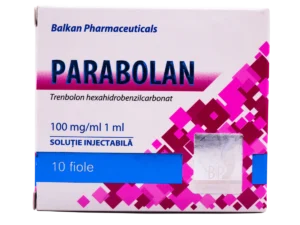If You’re Not Building Muscle with Bodybuilding, This is Why…
 Are you tired of putting in countless hours at the gym, lifting heavy weights, and following a strict diet, only to see minimal results in terms of muscle growth? If so, you’re not alone. Many individuals struggle to build muscle despite their best efforts in bodybuilding.
Are you tired of putting in countless hours at the gym, lifting heavy weights, and following a strict diet, only to see minimal results in terms of muscle growth? If so, you’re not alone. Many individuals struggle to build muscle despite their best efforts in bodybuilding.
Building muscle is a complex process that requires a combination of proper training, nutrition, and recovery. It’s not just about lifting weights; it’s about understanding the science behind muscle growth and implementing effective strategies to maximize your results. In this article, we will explore some common reasons why you may not be building muscle with bodybuilding and provide practical recommendations to help you overcome these obstacles.
One of the key factors that may hinder your muscle-building progress is improper training techniques. It’s crucial to have a well-designed workout program that targets all major muscle groups and incorporates a variety of exercises. Simply going through the motions or sticking to the same routine week after week can lead to plateaus and limited gains. We will discuss the importance of progressive overload, proper form, and workout frequency to ensure you’re stimulating muscle growth effectively.
Another aspect to consider is nutrition. Building muscle requires a sufficient intake of calories, protein, and other essential nutrients. If you’re not consuming enough calories or not getting the right balance of macronutrients, your body won’t have the necessary fuel to support muscle growth and repair. We will delve into the importance of calorie surplus, protein synthesis, and nutrient timing to optimize your muscle-building potential.
Furthermore, recovery plays a crucial role in muscle growth. Many individuals overlook the significance of rest and sleep in their bodybuilding journey. Your muscles need time to recover and repair after intense workouts, and lack of proper rest can impede this process. We will explore the importance of adequate sleep, active recovery techniques, and managing stress levels to promote optimal muscle growth.
In conclusion, building muscle with bodybuilding requires a comprehensive approach that encompasses proper training techniques, nutrition, and recovery. By addressing potential obstacles such as improper training, inadequate nutrition, and insufficient recovery, you can unlock your body’s full muscle-building potential. In the next sections of this article, we will dive deeper into each of these areas and provide practical recommendations to help you overcome these challenges and achieve the muscular physique you desire.
The Importance of Proper Training Techniques
When it comes to building muscle with bodybuilding, proper training techniques are paramount. One common mistake that individuals make is sticking to the same routine week after week without incorporating variations or progressive overload. To stimulate muscle growth, it’s crucial to challenge your muscles with increasing intensity over time.
Progressive Overload
Progressive overload is the principle of gradually increasing the stress placed on your muscles to continually stimulate growth. This can be achieved by increasing the weight, reps, or sets of your exercises. By consistently challenging your muscles, you force them to adapt and grow stronger.
Proper Form
Using proper form during exercises is essential to target the intended muscle groups and minimize the risk of injury. It’s important to focus on the quality of your movements rather than the quantity. Performing exercises with improper form not only reduces their effectiveness but also increases the likelihood of strains or sprains.
The Role of Nutrition in Muscle Building
Workout Frequency
Finding the right balance between training and recovery is crucial for muscle growth. While it’s tempting to hit the gym every day, your muscles need time to recover and repair. Aim for 3-4 weightlifting sessions per week, allowing at least 48 hours of rest between each session. This will give your muscles ample time to recover and grow.
Proper nutrition is another key factor in building muscle with bodybuilding. Without a well-balanced diet, your body won’t have the necessary resources to support muscle growth and repair.
Calorie Surplus
To build muscle, you need to consume more calories than you burn. This is known as a calorie surplus. It’s important to calculate your daily caloric needs and ensure you’re consuming enough to support muscle growth. Aim for a surplus of 250-500 calories per day, focusing on nutrient-dense foods to fuel your workouts and aid in recovery.
Protein Synthesis
Protein is the building block of muscle tissue, so it’s crucial to consume enough protein to support muscle growth. Aim for a protein intake of 0.8-1 gram per pound of body weight. Spread your protein intake throughout the day, including sources such as lean meats, poultry, fish, eggs, dairy products, and plant-based protein sources like legumes and tofu.
Nutrient Timing
When it comes to muscle building, nutrient timing can play a role in optimizing your results. Fueling your body with the right nutrients before and after workouts can enhance muscle protein synthesis and recovery. Prioritize consuming a balanced meal or snack containing both carbohydrates and protein within 1-2 hours before and after your training sessions.
The Importance of Recovery
Recovery is often overlooked but is crucial for building muscle effectively. Without adequate rest and recovery, your muscles won’t have the opportunity to repair and grow.
Adequate Sleep
Sleep is a critical component of the muscle-building process. Aim for 7-9 hours of quality sleep each night to support muscle recovery and growth. During sleep, your body releases growth hormone, which aids in muscle repair. Lack of sleep can hinder muscle growth and increase the risk of injury.
Active Recovery Techniques
In addition to rest, incorporating active recovery techniques can help promote muscle recovery. This may include activities such as light stretching, foam rolling, yoga, or low-intensity cardio. These activities increase blood flow to the muscles, helping to flush out metabolic waste and reduce muscle soreness.
Managing Stress Levels
High levels of stress can negatively impact muscle growth and recovery. Chronic stress increases the production of cortisol, a hormone that can break down muscle tissue and hinder muscle growth. Find healthy ways to manage stress, such as meditation, deep breathing exercises, or engaging in hobbies that help you relax.
Conclusions
Building muscle with bodybuilding requires a holistic approach that encompasses proper training techniques, nutrition, and recovery. If you’re not seeing the desired results, consider evaluating your training program, ensuring proper form, and incorporating progressive overload. Pay attention to your nutrition, focusing on a calorie surplus, adequate protein intake, and nutrient timing. Lastly, prioritize rest and recovery, including sufficient sleep, active recovery techniques, and stress management. By addressing these factors, you can overcome obstacles and unlock your body’s full muscle-building potential.
Practical Recommendations for Building Muscle with Bodybuilding
1. Evaluate and Adjust Your Training Program
Take a critical look at your current training program and make necessary adjustments to ensure you’re effectively stimulating muscle growth. Incorporate variations in exercises, increase weights or reps gradually, and focus on proper form to maximize your training efforts.
2. Prioritize Progressive Overload
Implement the principle of progressive overload by consistently challenging your muscles with increased intensity. Gradually increase weights, reps, or sets to stimulate muscle growth and avoid plateaus. Keep a record of your progress to track your improvements and adjust your workouts accordingly.
3. Focus on Proper Nutrition
Pay attention to your diet and ensure you’re providing your body with the necessary fuel for muscle growth. Consume a calorie surplus by calculating your daily caloric needs and aim for a surplus of 250-500 calories per day. Prioritize protein intake to support muscle repair and growth.
4. Optimize Nutrient Timing
Timing your nutrient intake around your workouts can enhance muscle protein synthesis and recovery. Consume a balanced meal or snack containing carbohydrates and protein within 1-2 hours before and after your training sessions. This will provide your muscles with the necessary nutrients for optimal growth and repair.
5. Get Sufficient Rest and Sleep
Make sure to prioritize rest and recovery in your bodybuilding journey. Allow your muscles at least 48 hours of rest between weightlifting sessions to promote proper recovery. Aim for 7-9 hours of quality sleep each night to support muscle repair and growth.
6. Incorporate Active Recovery Techniques
Include active recovery techniques in your routine to aid in muscle recovery. Engage in light stretching, foam rolling, yoga, or low-intensity cardio to increase blood flow to the muscles and reduce muscle soreness. These activities can help enhance overall recovery and prevent injuries.
7. Manage Stress Levels
Stress can hinder muscle growth and recovery, so it’s important to find healthy ways to manage stress. Practice relaxation techniques such as meditation, deep breathing exercises, or engaging in activities that bring you joy and help you unwind. Prioritizing stress management will contribute to optimal muscle-building results.
By implementing these practical recommendations, you can overcome common hurdles in building muscle with bodybuilding. Remember to be patient and consistent in your efforts, as muscle growth takes time. With the right training techniques, proper nutrition, and adequate recovery, you’ll be on your way to achieving the muscular physique you desire.








